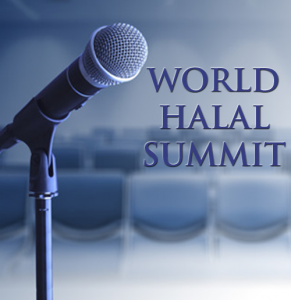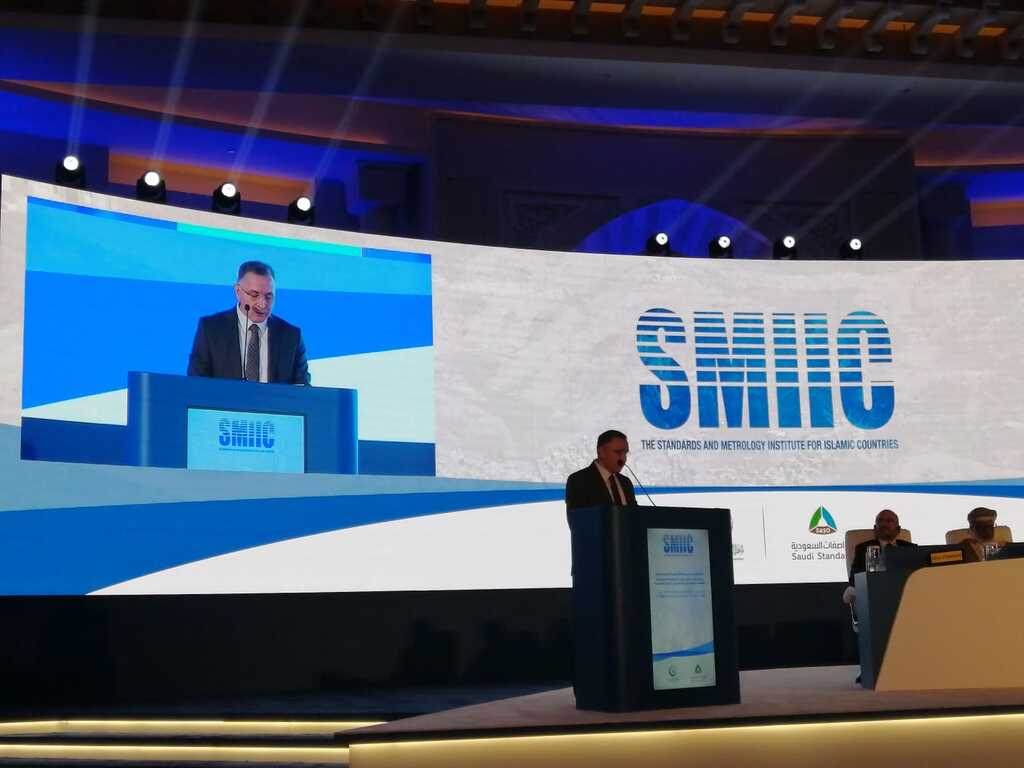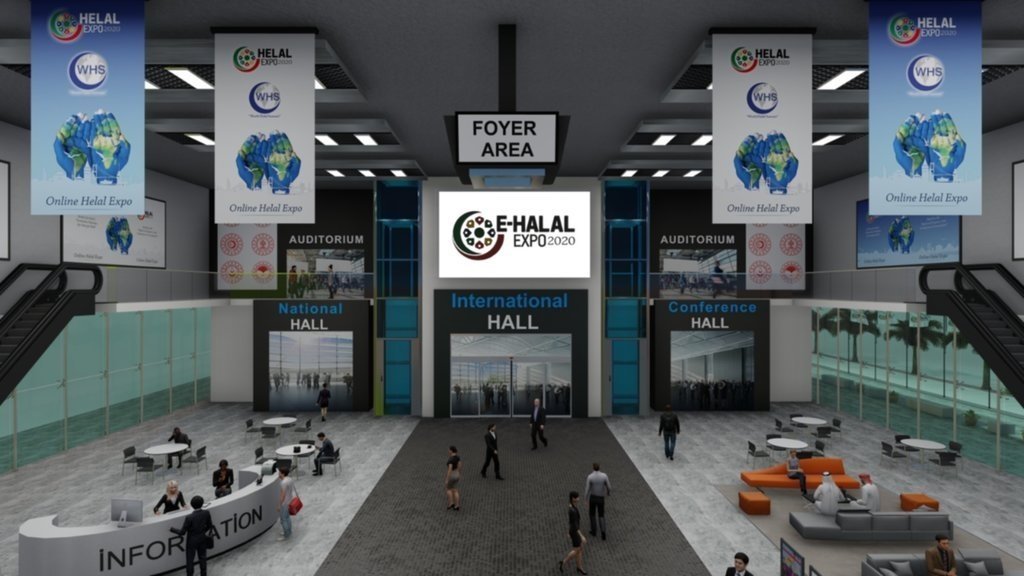
The Fifth Organization of Islamic Cooperation (OIC) Halal Expo and World Halal Summit, organized in cooperation with the Standards and Metrology Institute for the Islamic Countries (SMIIC) and the Islamic Center for Development of Trade (ICDT), held at Istanbul Lutfi K?rdar International Convention and Exhibition Center in Istanbul on Nov. 23-25.
Turkish Economy Minister Nihat Zeybekci attends inauguration ceremony of the 5th OIC Halal EXPO and World Halal Summit at Lutfi Kirdar International Convention and Exhibition Center. The World Halal Summit Istanbul (WHSI) and the 5th Organization of Islamic Cooperation (OIC) Halal Expo held under the auspices of the President Recep Tayyip Erdogan.

In his address at the World Halal Summit 2017, Turkey`s Economy Minister Nihat Zeybekci said “The demands of a global Muslim population of 1.8 billion for halal products and their certification is incrementally increasing.”
The minister pointed out that the demand for halal products, which are produced according to Islamic law as defined in the Quran, could not be satisfied solely by Muslim nations.
“But we can produce much more than today’s level,” he said. “All of the tasks of determining standards, setting up assessment and evaluation systems and certifying procedures for halal products should be done by Muslim countries.”
Turkey has the technical capability to provide this for the Muslim world, he added.

Earlier this month, Turkey’s parliament approved a law for establishing the country’s first halal accreditation agency.
Under the law, the Halal Accreditation Institution (HAK) will have the sole authority for certifying and accrediting halal products – goods made according to Muslim standards — in Turkey. It will also be able to establish offices abroad.

Turkey’s first halal accreditation agency will serve Muslims across the world when it opens, Economy Minister Nihat Zeybekci told the World Halal Summit in his address.
In a written statement to the summit, President Recep Tayyip Erdogan said managing halal certification through a single agency was important for Muslims around the world.
High-level speakers from more than 80 countries discussed issues surrounding halal food, pharmacy and medicine as well as Islamic finance, tourism and textiles.

Earlier, the chairman of the World Halal Summit Council Yunus Ete, reportedly said with the efforts of the government and the private sector it is possible to raise Turkey’s share in the world halal market from $100 billion to $400 billion in a short period of time.
He was quoted by the Turkish media as saying that the world halal sector is approaching $4 trillion with $2 trillion in Islamic finance products such as participation banking, payment systems and insurance, $1 trillion in halal food, $250 billion in halal tourism, and the rest in instruments such as halal medicine, halal cosmetics and halal textile.
Pointing out that livestock products, meat and poultry come to the fore in halal food, Ete said halal food certification is important for products containing additives.
“Halal certificates are sought for sugary products and beverages. A halal certificate is an opportunity to show the level of health especially in the products containing additives,” Ete said, adding, “Thus, halal certified products can be sold to non-Muslims, as well.”
He suggested that through the Halal Accreditation Authority (HAK), the Ministry of Economy can check the companies issuing halal certificates abroad about whether they take into account the Standards and Metrology Institute for the Islamic Countries (SMIIC) standards, a subsidiary of the Organization of Islamic Cooperation (OIC), regarding the halal certificate system.

One of the participants Mr. Tayeb Habib, the CEO of EU Halal based in Portugal highly appreciated OIC Halal Summit 2017. “I have been to such an international Halal Summit for first time. I think these events are beneficial as they fire the enthusiasm of those doing extraordinary work”, Tayeb said.
“I must appreciate organizers for holding such an informative event and OIC SMIIC for their extraordinary efforts to unify Halal Standards”, He added.
Global calls for unifying Halal standards is gaining momentum as different and local Halal standards established by countries, regions and some Halal Certifying bodies are rising concerns not only among industries such as food, meat, beauty products and tourism but also confusing Muslim consumers worldwide.



